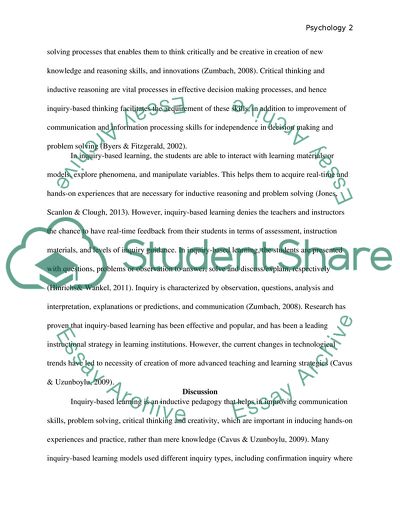Cite this document
(“Impacts of Inquiry-Based Learning Research Paper”, n.d.)
Impacts of Inquiry-Based Learning Research Paper. Retrieved from https://studentshare.org/psychology/1690432-impacts-of-inquiry-based-learning
Impacts of Inquiry-Based Learning Research Paper. Retrieved from https://studentshare.org/psychology/1690432-impacts-of-inquiry-based-learning
(Impacts of Inquiry-Based Learning Research Paper)
Impacts of Inquiry-Based Learning Research Paper. https://studentshare.org/psychology/1690432-impacts-of-inquiry-based-learning.
Impacts of Inquiry-Based Learning Research Paper. https://studentshare.org/psychology/1690432-impacts-of-inquiry-based-learning.
“Impacts of Inquiry-Based Learning Research Paper”, n.d. https://studentshare.org/psychology/1690432-impacts-of-inquiry-based-learning.


